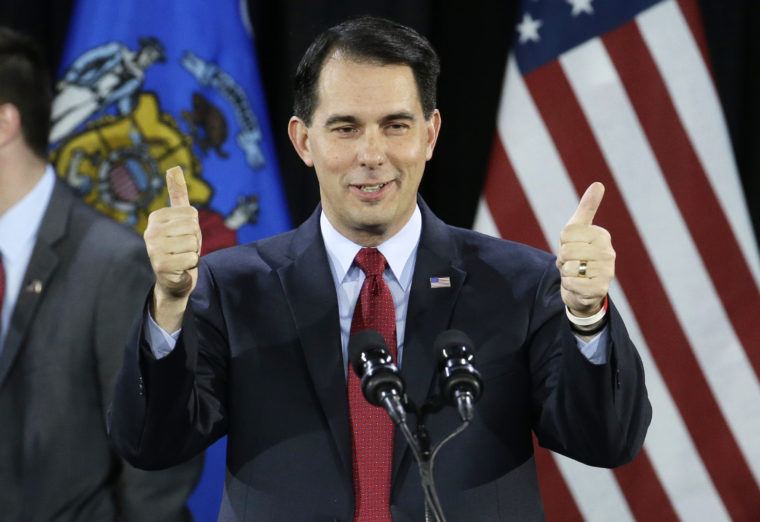For several years now, Wisconsin has been the focal point in the fight between conservative politicians and higher education. Governor Scott Walker has systematically attacked higher education in Wisconsin resulting in increased accountability, decreased autonomy, and drastic cuts in state appropriations. Of particular note, Governor Walker and the state legislature passed legislation dramatically curtailing the long-held protection of tenure and academic freedom in the state. The flagship campus in Madison has been hit particularly hard by the controversies with other institutions trying to steal faculty and a significant decline in research expenditures. While many may have thought the policy changes were over in Wisconsin, a recent policy change by the Board of Regents will change post-tenure review renewing the concerns of faculty and higher education supporters.

What is post-tenure review?
Before discussing the Wisconsin policy, it may be useful to understand what is post-tenure review.
Simply put, post-tenure review is periodic review of faculty following the awarding of tenure.
Post-tenure review may be designed to focus on faculty development or may have punitive elements that could lead to revoking of tenure.
Proponents argue that post-tenure review improves faculty productivity and performance by ensuring a system of review and feedback to promote continued professional growth.
Critics counter that post-tenure review threatens academic freedom and escalates managerial authority on campus.
AAUP Principles
The American Association of University Professors (AAUP) has a strong statement against post-tenure review:
The Association believes that periodic formal institutional evaluation of each post-probationary faculty member would bring scant benefit, would incur unacceptable costs, not only in money and time but also in dampening of creativity and of collegial relationships, and would threaten academic freedom.
Moreover, the AAUP argues that post-tenure reviews should focus on faculty development and not accountability. In particular, post-tenure review should not be considered a vehicle for dismissal as other procedures exist for dealing with poor performance or incompetence.
Growth of Post-Tenure Review Policies
Many post-tenure review policies came into existence during the late 1990’s with escalating calls for accountability and concerns in state legislatures about faculty productivity. In response, institutions— under legislative mandate or of their own accord— created post-tenure reviews as a response to these concerns.
In many cases, faculty were reviewed on an annual basis that served to determine salary for the next year. Some institutions added post-tenure reviews on top of existing annual reviews or created a separate process for them.
Almost all public universities have some type of post-tenure review policy and many private institutions instituted the reviews as well.
Despite this growth, I’d wager that the number of faculty dismissed by this policies could almost be counted on one hand. Policies were put into place but with little incentive for faculty or administrators to leverage them to fire faculty.
Change to Wisconsin’s post-tenure review policy
The change to the University of Wisconsin’s post-tenure review policy calls for an “independent, substantive review” by administrators and that the administrator has responsibility for the “final assignment” of the determination of the review.
The Wisconsin administration suggests the change is to clarify existing process and procedure, but faculty opponents see this as a continuation of the attack on tenure.
Given the recent history of Wisconsin, I tend to agree with the opponents that the change is politically motivated and intended to further erode faculty governance in the state.
To be clear, no one supports the idea of faculty slackers or those bad apples that need to be removed. However, as the saying goes, when you’re a hammer, everything looks like a nail.
The Wisconsin policy change places the final evaluation of faculty performance in the hands of administrators. Whether intended or not, the policy will force faculty to give back control and autonomy over their own work.
Two Major Problems
I can appreciate the desire for state legislatures, presidents, and dean to improve faculty productivity and the belief that post-tenure review is a mechanism to further this goal.
Yet, I believe post-tenure review leads to two significant problems that undercuts any potential benefits.
First, by its very nature, post-tenure review can undermine the willingness of faculty to object to administrative decision-making. As I’ve written before, we have to acknowledge that the push to limit the role of faculty in shared governance is partly the result of a desire to reduce objections to implementing a privatization agenda. The history of higher education shows that we make better decisions for our institutions when we invite faculty to the table as a parter in decision making. Eliminating the faculty voice hurts institutions.
Second, I am greatly concerned about the potential impact of aggressive post-tenure review policies on faculty work. Great academic work takes time. Experiments sometimes don’t work. Insights require time to come to fruition.
Everyone from governors to university presidents love to tout the power of creativity and innovation. Yet, policies such as post-tenure review can undermine an environment that supports this type of work. If I have to demonstrate productivity, I’m going to undertake studies that are quick and safe. I know they will be successful and meet the institutionally mandated metrics.
However, I would argue that this is precisely not what the university wants me to do. Shouldn’t we instead be encouraging faculty to take some risks and push the envelope of our understanding?
In the end, this is the problem with post-tenure review policies. We want to get rid of grossly incompetent faculty and administrators should use existing policies to handle these cases.
In an economy driven by creativity and knowledge work, we simply can’t afford to undermine our greatest knowledge producers: the faculty.

